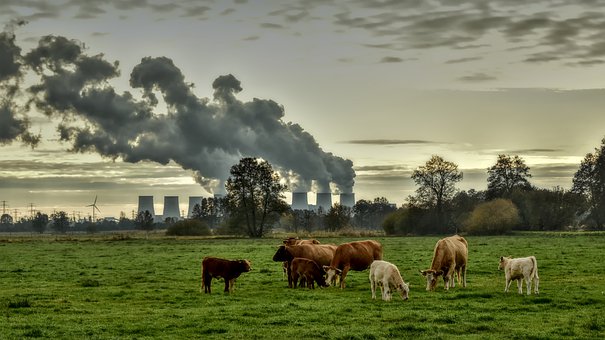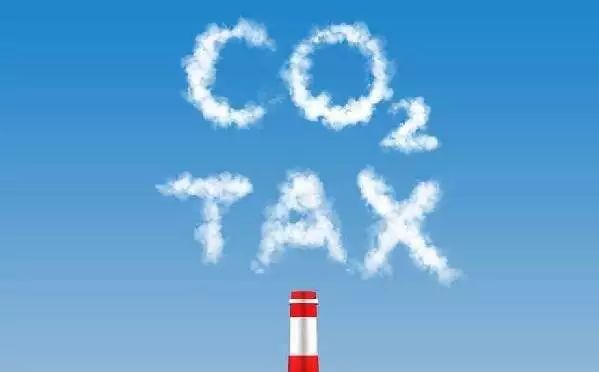创新背景
政策制定最先需要考虑的是客观实际情况,同时也需要参考人们的意见和偏好。想要控制气候变化和温室气体排放,相关经济政策的实行至关重要。
创新过程
波茨坦气候影响研究所的研究表明,遵守气候友好型政策实际上改变了人们对环境和生活的看法,研究成果《具有内生偏好的气候变化经济学》2022年发表在《资源与能源经济学上》。

气候减缓政策的设计依赖于经济模型。经济学的模型假设通常认为个体生来就具有一套固定的价值观和偏好,这些价值观和偏好不会轻易变化,基本一生都维持一种思维方式。这样的假设对现实有所简化,使计算更容易。但偏好代表一个人的价值观和习惯,体现在经济上就是喜欢与讨厌导致的消费选择。在不同的人生阶段人的消费选择和偏好发生变化几乎是必然的,比教科书和模型假设的更具可塑性,这也导致了经济的发展变化。如果个体始终保持偏好不变,那么经济模式的改变只会更加困难。在制定碳税或建设低碳基础设施等政策时需要考虑人们的思维方式和偏好变化。

偏好的变化实际上是有迹可循的,比如吸烟影响健康的观念在教育宣传过程中普及时对香烟价格进行干预并提高禁令管控程度,戒烟的人就会越来越多,但经济学家很少将这个现象理解为偏好变化。研究的主要领导者,波茨坦气候影响研究所和牛津大学的研究员Linus Mattauch表示,气候政策相关的经济模型建设需要改进,增加答辩偏好变化的部分。
碳定价对于实现气候目标至关重要,但如果碳定价改变了人们的偏好,会对相关的经济模式产生影响。比如,如果消费者认为碳价格表明政策对他们来说是合理并且可以接受的,那么碳定价的政策就会顺利施行,并且发展低碳偏好,通过给定的税率实现环境保护。

在城市规划设计中,如果政府投入资金并使城市的基础设施更适合骑自行车,居民将从开车转向使用公共交通工具或骑自行车,并将这种行动持续下去,为环境和自身健康带来溢出。经济模型和政策考虑到这些好处可以降低相应的投资门槛。
认识到气候政策工具修改偏好形成过程可以为每个人制定更好的气候政策,并有助于推进政府间气候变化专门委员会最近提出的使用需求方措施遏制碳排放的建议。当策略更改首选项时,如果不考虑人们的偏好变化,实行效率会很低下。并且,政策引发的对积极旅行和植物性饮食偏好的变化可能会增加向零排放过渡的净效益。
创新关键点
将人们的偏好变化以及后续的消费选择变化纳入气候经济政策的制定因素中。
创新价值
有助于制定更加合理可行的气候经济政策,在保证能顺利达到目标的同时符合人们的需求和预期,有效推进经济发展和环境保护。
Climate economic policy formulation should take into account changes in people's preferences
Research from the Potsdam Institute for Climate Impact Research shows that adherence to climate-friendly policies actually changes the way people think about the environment and life, and the findings of the study, The Economics of Climate Change with Endogenous Preferences, were published in Resource and Energy Economics in 2022.
The design of climate mitigation policies relies on economic models. The model assumptions of economics usually assume that individuals are born with a fixed set of values and preferences that do not change easily and that they maintain a way of thinking for basically their entire lives. Such assumptions simplify reality and make calculations easier. But preferences represent a person's values and habits, which are embodied in the economics of consumption choices caused by likes and dislikes. Changes in people's consumption choices and preferences at different stages of life are almost inevitable and more malleable than textbooks and models assume, which has also led to changes in economic development. If individuals always maintain the same preferences, then changing the economic model will only become more difficult. Policies such as carbon taxes or the construction of low-carbon infrastructure need to be taken into account when developing policies such as people's thinking and preferences.
There are actually traces of changes in preferences, such as the idea that smoking affects health intervenes in cigarette prices and increases the degree of ban control when the education process is popularized, and more and more people quit smoking, but economists rarely understand this phenomenon as a change in preference. Linus Mattauch, a research leader at the Potsdam Institute for Climate Impact Research and the University of Oxford, said the construction of economic models related to climate policy needs to be improved to increase the portion of the change in defense preferences.
Carbon pricing is critical to meeting climate goals, but if carbon pricing changes people's preferences, it will have an impact on the relevant economic model. For example, if consumers believe that the carbon price indicates that the policy is reasonable and acceptable to them, then the carbon pricing policy will be implemented smoothly, and low-carbon preferences will be developed to protect the environment through the given tax rate.
In urban planning and design, if the government invests money and makes the city's infrastructure more suitable for cycling, residents will shift from driving to using public transport or cycling, and continue this action, bringing spillovers to the environment and their own health. Economic models and policies that take these benefits into account can lower the corresponding investment threshold.
Recognize that the preference-building process for climate policy tools can lead to better climate policy for everyone and help advance the recent recommendations of the Intergovernmental Panel on Climate Change to curb carbon emissions using demand-side measures. When policies change preferences, they are inefficient if they don't take into account people's preference changes. Moreover, policy-induced changes to active travel and plant-based dietary preferences are likely to increase the net benefits of the transition to zero emissions.
智能推荐
国民经济学创新思维 | 通过俄勒冈州保险补助计划的二次研究揭示医疗补助对家庭的影响
2022-08-10这项研究从新的角度对俄勒冈州医疗保险实验进行分析,使我们了解了父母的医疗补助资格对孩子的医疗补助登记的影响。研究发现,父母的医疗补助资格并不会持久地、过多的影响符合条件却未加入医疗补助计划的孩子,但具体的原因还需要进一步的研究。该研究还强调了对随机试验进行进一步的二次研究的价值:当我们将实验与其他行政数据联系起来时,就可以通过它们来研究经济和社会政策的潜在的重要问题。
涉及学科涉及领域研究方向金融学创新思维 | 通过金融建模促进对可持续基础设施的投资
2022-08-14麻省理工学院(MIT)旗下的EverVest公司建立了一个数据分析平台,该平台通过分析设备类型、合同承购协议、电网连接、天气、操作和维护成本等各种可能影响可再生能源项目的因素,为用户提供未来现金流模型的详细分析,以及项目财务风险的详细统计分析,帮助投资者更好地计划可再生能源的投资项目。目前,EverVest平台和团队已被Ultra Capital收购。
涉及学科涉及领域研究方向产业经济学创新思维 | 医疗保健行业中的“零价格效应”研究
2022-10-31在现实实践中利用过去十年日本儿童保健补贴的迅速扩大来识别零价格效应,探究零价格对于医疗保健行业和公共管理的影响。
涉及学科涉及领域研究方向经济与管理学创新思维 | 用可持续性供应链取代线性生产模式
2022-08-01越来越多的公司意识到了发展循环经济的紧迫性,然而许多企业并不完全了解循环经济,包括如何确定最佳机会来追求实现转变所需的替代材料,工艺,技术和人才。本篇由斯坦福大学的研究人员发表的文章,表明了“制造——消费——丢弃”的线性生产模式的弊端,并提出了企业应如何向循环经济转变的方法,为在全球范围内实施循环经济奠定了基础。
涉及学科涉及领域研究方向